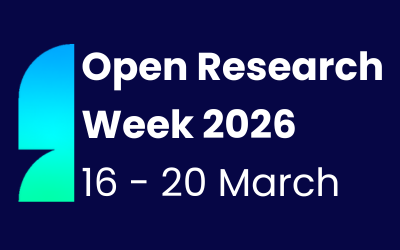Open Research
At The Open University (OU) we believe research should be shared openly and widely to maximise its impact. With our distinctive, open mission, we aim to foster an open research culture that maximises the use of existing research knowledge and minimises the need for duplication.
Open Research is one of the five priority areas of the OU Research Plan 2022-2027 and focusses on embedding the values of openness across the University, as well as promoting equitable publishing models that make research methods and results available quickly.
Our Statement on Open and Engaging Research outlines how we embed open mechanisms into the OU Open Research Journey from research project conception through to producing outputs. We are also committed to creating a research culture that promotes, enables and rewards open and engaging research practices for our staff and students. We are a signatory of the San Francisco Declaration on Research Assessment (DORA) and committed to the values of openness and equity in research assessment and career advancement in higher education.
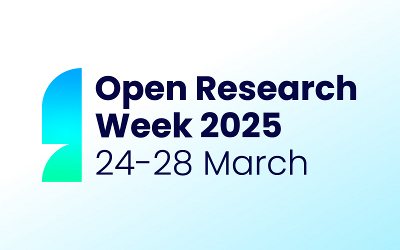
Open Research Week 2025
The OU hosted its first Open Research Week from 24-28 March 2025 to celebrate and promote open research, showcasing examples of our open practices across many disciplines. Throughout the week, presenters shared real world applications and engagement of the OU’s openly available data, outputs and citizen science platforms. They also shared lessons on using open practices to help research teams make their research processes and outputs more open.
The 10 webinars included a talk by the team that developed the OU's free course on Open Research, researchers using citizen science platforms to extend data collection, open book and journal publishing options, how to use open science to support science communication, and talks on AI.
Recordings of the webinars are available on the OU’s YouTube channel, which includes Professor Kevin Shakesheff, Pro-Vice-Chancellor, Research & Innovation, talking about accountability in research, Professor Theo Papaioannou, OU Open Research Lead, talking about how open research breaks down barriers to access, and Professor Stephen Serjeant, Professor of Astronomy, talking about how citizen science can make a difference.
Find out more about our Open Research Week 2025You can also read our examples of open research practices and ideas for how to make your research more open.
The role of Citizen Science in open research
We need human effort in many scientific tasks, which can include asking the general public for help. Watch the video below to hear Professor Stephen Serjeant share an example of how citizen science using crowdsourced datamining makes a very real scientific impact, for example using humans to look for warps in space and time using the Euclid telescope.
In the era of AI, is there still a role for humans in research?
Imagine that you've been given the job of finding faces in crowds. It could be, for example, for finding missing persons, or people wanted by law enforcement, or anything else - it doesn't matter.
Now there's already lots of off-the-shelf AI, or machine learning, that you can use to do this. So you set up your cameras, deploy the AI, and look for the missing persons.
So far so good. But here's what your camera saw.
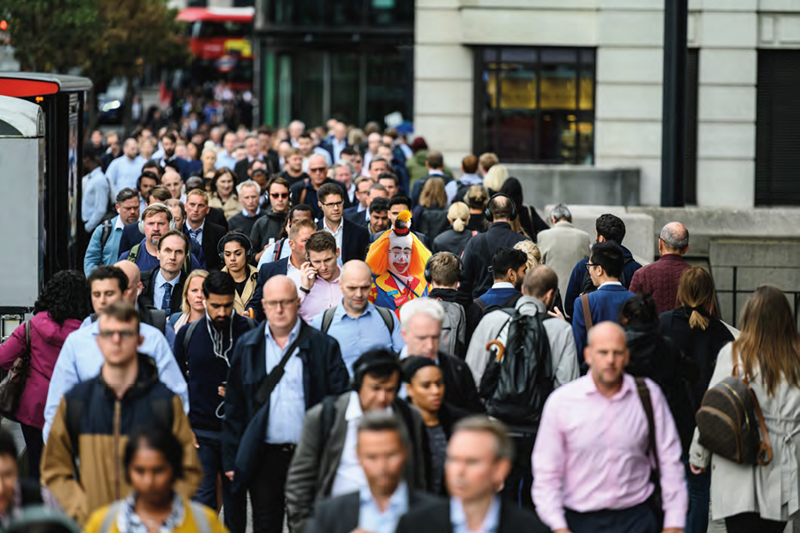
Image is from figure 1 of Citizen Science in the European Open Science Cloud. I don't have it in a higher resolution than is in the PDF I'm afraid.
Do you see the clown? Now there is absolutely no AI that will be able to say, wait a minute, there's a clown! Unless you've prepped it specifically to look for clowns, it'll just go face, face, face, face.
But a human being can take a step back and say, there's something weird here. There's a clown. Why is there a clown?
So humans looking through data can do things that no AI can do at all. They can take a step back, spot things that weren't being asked for or weren't in the training data, and even question the fundamental task.
So even in the age of AI there is still an important role for humans. And that's why we need human effort in many scientific tasks, including asking the general public for help. This crowdsourced data mining is a sort of citizen science, and makes a very real scientific impact.
We've recently had human help to look for warps in space and time with the Euclid space telescope, like this beautiful ring. A background galaxy is seen through the warped space in a foreground one, so the background one looks warped into a ring.
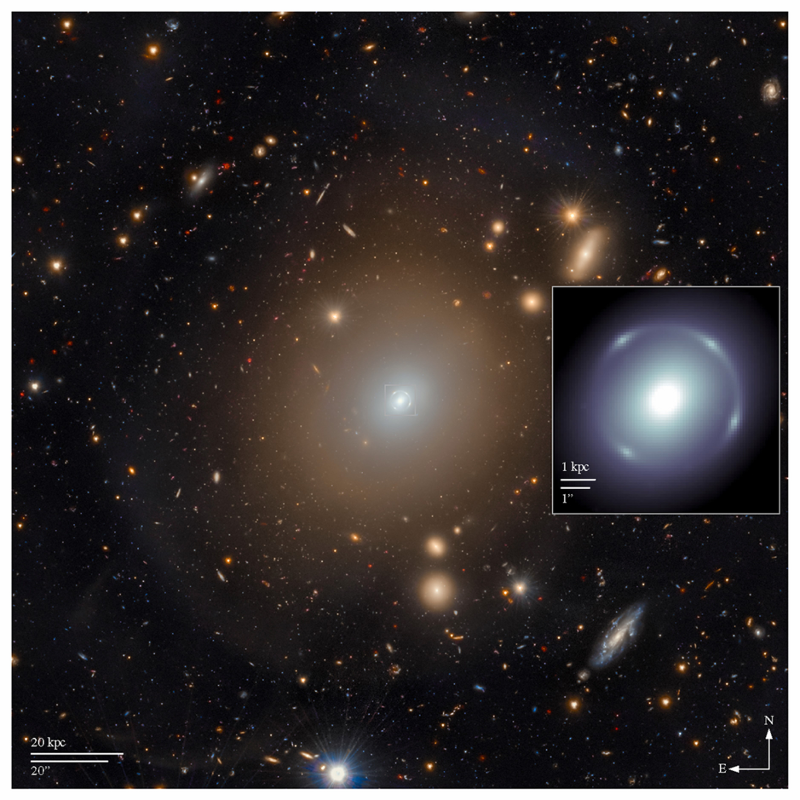
Even AI can't find these reliably enough, so we need human help. And opening up scientific research to the public with projects like this is something we're doing on a continental scale, in the European Open Science Cloud.
Citizen Science is not outreach
What research would you like 100,000 people to do for you? Watch Professor Stephen Serjeant share why citizen science is about deploying humans to help you with a research problem and why outreach is not the primary goal of citizen science. Learn more about our approaches to citizen science with our Open Research Week webinars on the expansive Pelagios Network, the award-winning iSpot and the hugely popular nQuire platforms.
Why citizen science is not outreach
If there's one thing I would like you to remember about citezen science, it is this. It is that citizen science is not outreach. It is not outreach. Okay.
Now, human beings have cognitive abilities that are way beyond any machine learning or AI. And you can deply these abilities into big research questions. And that's what citizen science often does.
Think of it like a biological computer. 100,000 people. A multi-headed hydra deployed on a research problem for you.
Now it can help with outreach. That's great. And outreach is great. But if that's your primary goal, you're better off focusing your efforts specifically on that rather than on citizen science. But if you've got a research goal, then citizen science could be the thing for you.
And, so this is a question that I would like you to think about. What would you like 100,000 peopel to do for you?
Citizen science at The Open University
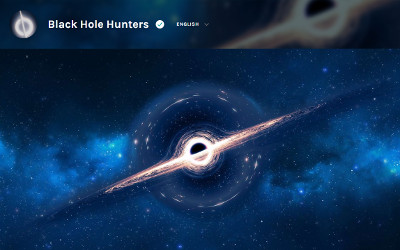
Black Hole Hunters: Making the invisible visible
Are you interested in helping us find some of the Milky Way galaxy's millions of missing black holes? Using data from the TESS satellite, we’re asking citizens to look at some simple graphs of how the brightness of stars changes over time and to help reveal the hidden black holes in our galaxy.
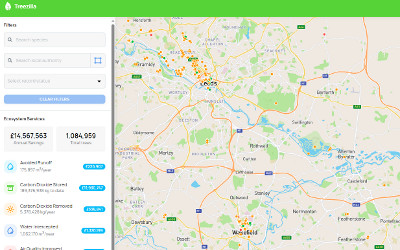
Treezilla
The information that we have about trees in the UK is limited, particularly in urban areas, and very little of it is available to the public to view in an easy-to-understand way. This interactive mapping project encourages individuals, local authorities, businesses and local groups to map, measure and monitor trees across the United Kingdom and Republic of Ireland.
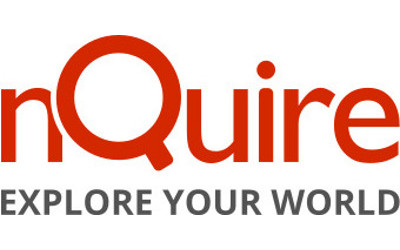
nQuire
The Open University’s platform that brings a democratic, inclusive and equitable approach to research by enabling you to build, take part and learn about scientific research.

iSpot
A free community helping to identify wildlife and share nature.

